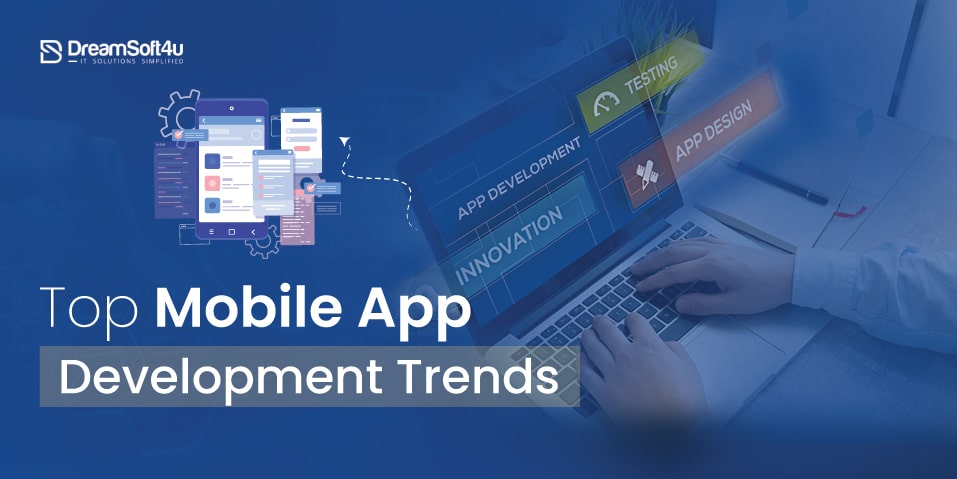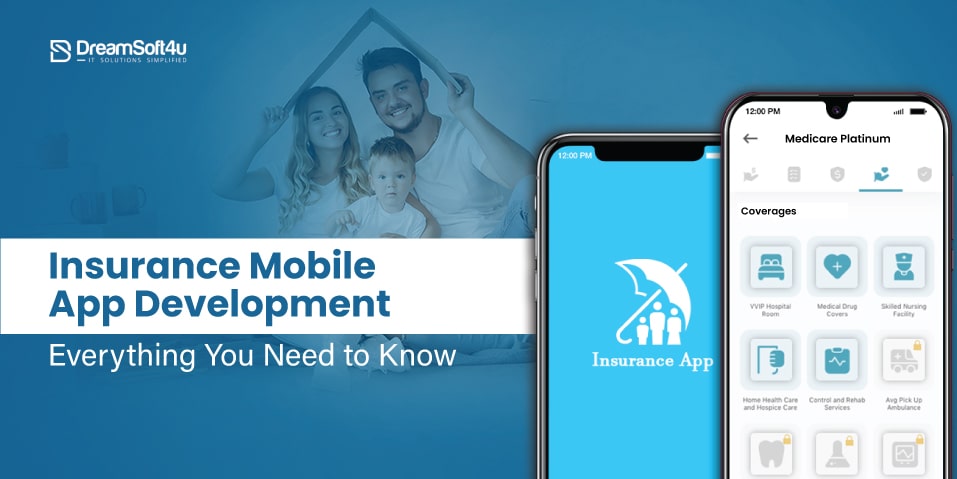Salesforce is a powerful platform, but it delivers real value only when implemented correctly for your business. Many organisations struggle with inefficient workflows, disconnected systems, and delayed ROI – not because Salesforce is lacking, but because they chose the wrong Salesforce consulting partner.
A poor integration partner choice can affect your entire CRM journey, delaying ROI, slowing down sales operations, and creating costly inefficiencies across departments.
Partnering with a team that provides Salesforce development services helps ensure scalable implementation, seamless integrations, and long-term value from your CRM investment.
That is why choosing the right Salesforce Consulting Partner is one of the most important decisions you will make.
A great partner does not just plug in tools and walk away. They take time to understand how your business works, align Salesforce with your specific goals, help you avoid common roadblocks, and ensure everything runs smoothly from day one.
But with thousands of firms claiming to be “Salesforce experts,” how do you find the one that truly fits your business? Relax, we have researched for you.
In this guide, you will learn:
- Why do you need a salesforce integration partner
- Key factors to consider
- Common mistakes to avoid while choosing one
- Simple steps to find the right partner for your business
- Key questions to ask before hiring
- How the right partner can help you grow faster with Salesforce
Whether you are setting up Salesforce for the first time or fine-tuning an existing system, this blog will help you move forward with clarity and confidence.
Table of Contents
ToggleWhy Do You Need a Salesforce Consulting Partner for Your Business?
Did you know? Around 90% of Fortune 500 companies are using Salesforce products to enhance their CRM strategies. Here are some significant reasons why you need a Salesforce consulting partner:
Salesforce Expertise
Salesforce is a powerful CRM platform. But it takes real expertise to unlock its full potential. A certified Salesforce expert knows how the platform works and understands your industry. They can connect it with your existing tools. They make sure everything is set up correctly and fits your business needs.
Tailored Solutions
Each organization has its business processes and hurdles to overcome. Simply “installing Salesforce” will not always provide the value you’d hope to add. That’s where a good Salesforce consulting partner is not just someone who will “install Salesforce”; they will understand how your business works, ask you questions, observe how your teams work, and customize the system based on your exact needs.
Scalable Setup
As your business continues to scale, your technology needs continue to increase. A dependable integration partner will not only build for today but also build your Salesforce environment with tomorrow in mind. From scalable data architecture capabilities to flexible automation, your system will be constructed to accept additional users, more data, and new and improved workflows, which create smoother, faster, and more affordable scalability.
Minimal Downtime
Adopting a CRM can be a disruptive event; however, your business cannot afford to stop working. This is where an experienced Salesforce partner can be beneficial. With experience, they have developed procedures and checklists, as well as risk controls that will assist in ensuring a smooth transition, taking place in the background so your team can stay focused on their work and avoid disruption to their productivity.
Seamless Implementation
Connecting Salesforce CRM to your existing tools, databases, and workflows isn’t an easy task. The potential for data loss, broken connections, and poor end-user experiences is just one mistake away. That’s why it’s essential to engage an integration partner who is experienced. They follow best practices, have secure protocols in place, and test first before going live.
Save Time and Costly Mistakes
It can be dangerous and costly to figure things out on your own. It often leads to project delays and data mistakes, and long-term costs are sometimes infinite. By leveraging the expertise of a qualified partner, you minimize guessing, reduce unnecessary rework, and get to value faster. Ultimately saving you time, money, and unnecessary headaches.
Ongoing Support and Optimization
Salesforce is not “set it and forget it.” Salesforce is a living, breathing application that needs to change as your business changes. The right partner does not drop off the face of the earth when you go live. The partner will assist your team if you encounter issues with your technology and can provide suggestions for adjustments as your business evolves.
10 Key Factors to Consider When Choosing a Salesforce Consulting Partner

Here are ten key factors that can help you pick the right Salesforce consulting partner with confidence:
1. Salesforce Expertise and Certifications
Expertise matters when integrating Salesforce. The partner you want should have certified Salesforce developers, architects, and consultants who are well-versed in the Salesforce platform. Salesforce certifications like Platform Developer or Integration Architect provide evident proof that they have satisfied Salesforce’s technical thresholds. More importantly, a certified team can implement and set things up more quickly, reduce the chance of common errors and problems, and ensure the system is aligned with your required business objectives.
2. Industry-Specific Experience
Each industry has unique workflows, compliance expectations, and customer journeys. So, it is vital that you select a partner with reputable experience in your specific industry. Whether it is healthcare, finance, e-commerce, manufacturing, etc, they will already be familiar with operational nuances, everyday integration capabilities, and compliance requirements. That means they will be able to provide better recommendations, implement services quicker, and make fewer mistakes.
3. Tools & Integration Approach
Salesforce can integrate with thousands of tools and platforms, but the design of those integrations matters. An experienced Salesforce CRM Integration partner will walk you through the tools they are using, whether it’s middleware tools like MuleSoft or Dell Boomi or APIs, and explain why they are the correct tools for your requirements. The partner needs to be able to design clean, stable, and future-proof connections, whether you’re integrating Salesforce with your ERP, marketing automation, or e-commerce platforms.
4. Portfolio and Case Studies
Before you make your decision, spend some time in their track portfolio and see what type of work the partner has delivered. Request examples or case studies of the partner’s past work similar to your project. A good partner should be willing to explain their challenges, how they solved them, and the results they delivered.
5. Full-Service Capabilities
Integration is just one piece of Salesforce. You will likely need other services along the way, like Salesforce customization, data migration, user training, or ongoing support. That is why it is smart to work with a partner who can handle all these areas under one roof. A full-service partner saves you the hassle of working with multiple vendors and taking care of your end-to-end ecosystem. They already know your systems, so they can respond faster and provide better long-term value.
6. Data Security & Compliance
There is no debate about securing customer and business data- especially when you are in a regulated industry such as finance or healthcare. You need your integration partner to take data security seriously to ensure safe integrations. This includes encryption, user access controls, and compliance with compliance standards (GDPR, HIPAA, etc ). Even small mistakes can be leveraged into a significant legal or financial liability. You want to make sure your partner can explain how they secure your data and provide examples of secure integrations they have completed before.
7. Post-Implementation Support and Maintenance
Launching your integration isn’t the end; it’s just the beginning. Your business will evolve, your tools will develop, and Salesforce will roll out updates throughout the year. That’s why your partner should have dependable post-implementation support services such as bug fixes, performance measurements, system updates, and ongoing user education. A good partner won’t just disappear when the deployment goes live; they will stay around to help you continue to streamline the Salesforce Development Lifecycle and integrate new integrations as your business evolves, and provide troubleshooting assistance when necessary.
8. Read Client Reviews and Case Studies
The best way to know what it feels like to work with a partner is to have previous clients tell you about it. Search for reviews on Clutch or G2, and don’t be shy to ask for references directly from the partner. Notice how people describe their communication, reliability, and technical capabilities. If most clients come off as genuinely satisfied and willing to refer to them, that’s a solid indicator that you are making a good decision.
9. Clear Communication and Collaboration
Effective communication can determine if a project is better or worse. The right Salesforce partner is responsive, transparent, and proactive from the first conversation, considering the scope in case or supported work as “fire” and “project,” they will want to understand your business, relay their solution without using technical speak, and update you throughout your project. Collaboration is essential, too. Make sure your internal team does not feel excluded from key decision points.
10. Budget
Cost is always a key factor. But make sure you understand the total cost before you sign anything. A reputable partner will provide you with simple pricing rates, identify what exactly is included, and explain all other possible additional costs for your Custom CRM Solution. They will also assist in eliminating surprise expenses in the future through proper planning from the preliminary stage of your project. One important point to remember is that the lowest price does not equal the best quote. A good partner provides you value, not just savings, and lets you build a solution, and that solution will last.
How to Find the Right Salesforce Consulting Partner? 5 Simple Steps

Here is the simple process to find the right Salesforce integration partner for your business:
Step 1. Define Your Project Goals & Requirements
Before jumping into partner research, take a moment to understand what you need from Salesforce. Ask yourself:
- Are you looking to streamline sales workflows?
- Automate customer service operations?
- Or maybe you want to integrate Salesforce with your eCommerce platform or ERP system?
Without knowing the need, even the best Salesforce consulting partner will not know how to help you.
The more specific your goals are, the easier it will be to find the right partner. It also avoids misunderstandings later and keeps your entire project focused and aligned.
Step 2. Set Your Budget & Timeline Expectations
Once you know what you want to achieve, the next step is figuring out how much you are willing to invest and how quickly you need it done.
Salesforce implementation is not a one-size-fits-all service — costs and timelines vary widely based on your business size, integration needs, and complexity of requirements.
Before reaching out, decide:
- What is your realistic budget range?
- Is this a one-time setup, or will you need ongoing maintenance and support?
- What is your desired timeline, and what is your absolute latest deadline?
Having a rough budget range and deadline helps you filter out partners who are not a good fit early on. It also gives potential partners something to work with when proposing solutions. So you do not waste time going back and forth later.
Step 3. Compile a List of Salesforce Partners
Once your goals and budget are clear, start searching for the right-fit partners. You can use trusted sources like:
- Salesforce AppExchange (official partner directory)
- Clutch, G2, or GoodFirms for verified client reviews
- Referrals from your network or LinkedIn connections
Now that you have a list, it is time to dig deeper and compare. Here is what to check:
- Experience: Have they handled similar projects? Can they showcase studies?
- Approach: How do they manage projects — do they use Agile, Waterfall, or something hybrid?
- Tools: Do they prefer custom app development, middleware like MuleSoft or Dell Boomi, or low-code solutions?
- Cost structure: Fixed fee, hourly, or milestone-based? Do they offer a transparent quote?
Also, consider the given key factors to evaluate partners and shortlist the best one for your project.
This step is about seeing who not only has the technical expertise but also fits your working style and business needs so that you can shortlist the most promising partners.
Step 4. Request a Proof of Concept
Before making your final decision, ask your top shortlisted partners for a small Proof of Concept (PoC).
It is a simple test where they show how they will solve one part of your project. It helps you see how they work, how well they understand your needs, and whether their solution fits your business.
This step helps you separate those who “talk the talk” from those who can truly deliver. It is a smart way to reduce risk before committing to a whole project.
Step 5. Review the Contract & Finalize the Partner
Once you have chosen a partner you feel confident about, it is time to go through the contract carefully.
You must check for:
- A clear scope of work: What exactly will they deliver, and by when?
- Final pricing: Make sure there are no hidden costs.
- Support terms: Will they help post-implementation? For how long?
- Ownership rights: Clarify who owns the customizations and data.
- Exit terms: What happens if you want to pause or cancel the partnership?
Once everything looks good, seal the deal and get started with a trusted Salesforce Consulting Partner who understands your business and is ready to deliver real results.
That is it! In just five simple steps, you have found your best-fit Salesforce integration partner.
Questions to Ask Your Potential Salesforce Integration Partner
If you’re going to choose someone who understands your business and can deliver real results, here are some things to ask and why these questions are essential:
1. Can you walk us through your average Salesforce integration project
2. Have you worked with any companies in our industry
3. What processes do you have for maintaining data security and compliance
4. What integration tools and technologies do you use
5. What kind of post-implementation support do you provide
6. Do you understand our business objectives and daily operations
7. Can you provide us with case studies or references from similar projects
8. Are your team members Salesforce-certified
9. Do you have a disaster recovery and data backup plan
10. Will the solution you build be scalable and adaptable to future needs
Looking for a Salesforce consulting partner ?
Our certified experts provide tailored Salesforce solutions to fit your business
Mistakes to Avoid When Choosing a Salesforce Integration Partner
Here are some major mistakes you must avoid when choosing a Salesforce Consulting Partner:
- Choosing the cheapest partner: Low rates may sound good upfront, but they often lead to poor implementation, bugs, or extra costs later. Pay for quality, not just a low quote.
- Not checking for Salesforce expertise: Not every tech company knows Salesforce well. Make sure they are certified and have handled integrations like yours before.
- Starting without clear goals: If you are unsure what you want Salesforce to solve, the results may disappoint. Get clear on your goals first, then find a partner who can help you get there.
- Ignoring client reviews: do not skip this step. Hearing from past clients gives you real insight into how a partner works and what you can expect.
- Rushing your decision: Picking a partner too quickly can lead to regrets. Take time to compare your options, ask questions, and see who really understands your needs.
- Forgetting about ongoing support: Your Salesforce setup will need updates and fixes over time. Choose a partner who offers reliable long-term support.
- Overlooking communication and fit: Great results come from great teamwork. Choose a partner who listens, communicates clearly, and fits well with your team’s working style.
Why is DreamSoft4U the Best Salesforce Consulting Partner for your business?
DreamSoft4U is a leading Salesforce development company. We have a team of certified Salesforce experts who offer end-to-end Salesforce services for all sizes of businesses across major industries. We take time to understand how your business works and then build a custom solution that fits your business needs. Contact us today to know how we can help. Interested in joining our team? Explore exciting opportunities in Salesforce careers at DreamSoft4U.
Conclusion
Choosing the right Salesforce consulting partner is crucial for your project’s success. However, with thousands of options out there, it is hard for businesses to find out which one is suitable for their project needs. We hope this guide helps you understand the benefits of choosing the right Salesforce integration partner, the key factors to consider, and how you can find the right Salesforce integration partner for your business. Whether you’re looking for seamless integration or end-to-end Salesforce development services, now it is your turn to follow the given steps and choose the right Salesforce integration partner for a successful Salesforce application development.
FAQs
1. Why do I need a Salesforce consulting partner?
A Salesforce consulting partner ensures that it is not plug-and-play; it requires technical expertise. So, they make sure Salesforce works the right way for your business, saving you time, avoiding mistakes, and helping you get the most out of the platform.
2. How do I know if a partner is experienced enough?
Check their past projects, client reviews, and Salesforce certifications. Ask if they have worked with companies like yours before.
3. What should I ask before hiring a partner?
Some great starting questions include:
- How do you handle Salesforce integrations from start to finish?
- What industries have you worked with?
- What kind of post-launch support do you provide?
- How do you ensure data security and compliance?
4. How much does it cost to integrate Salesforce?
Costs vary by project size and complexity. A good partner will give you a precise, upfront estimate with no hidden fees.
5. What support do I get after the integration?
A reliable partner will offer training, updates, and ongoing help to keep your system running smoothly.



















